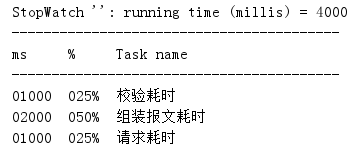- 2021年,我在百家号里的美食碎碎念之二百五十五
暖暖的柠檬树
家里有现成的手擀面条,周末没有休息,下班回家比较累可,就没去菜市场买菜。用家里现有的食材做完热汤面。一颗西红柿炒成浓汁,加一勺肉臊子,白菜叶子,加入热水,水滚开后把面条直接煮到西红柿汤中,煮熟后,加入小青菜和合适的调味料,一起搅拌均匀就可以出锅了。热腾腾的一碗汤面,营养也不错,吃起来特别舒服。一碗简单的热汤面里藏着我的幸福和快乐!(以上美食碎碎念记录于2021年9月)
- 2023-06-21 最怀念
南方有佳木
今年的我,刚满四十。或许是生活得比较平顺、安稳,四十年来,我并没有觉得时光的无情流逝。增加的除了数字外,在我的心里,我依然还是那个27.8岁的我。但是,流逝的时光却永远带走了我的外公外婆。如果问我最想念的是谁?我想说最想念的是我的外公外婆,最怀念的时光是小时候在乡下和外公外婆一起生活的每一个假期。现在拟声造景的风吹麦浪,大雁南飞,瓜果飘香,在那个童年时光中,我都一一感受过。我很怀念那时的时光,我也
- 千年古银杏
曦微w行走在路上
千年银杏,摄影:曦微千年银杏,摄影:曦微《千年古银杏》秦岭临瞰百塔寺,银杏香浓千百年。别家金光随风去,且看本色翠相连。多少风霜雨慕雪,我自凭栏望云烟。四时黎民歌乐土,世代江山待远帆。千年银杏,摄影:曦微千年银杏,摄影:曦微千年银杏,摄影:曦微注:刚一入秋,城里四处散落的银杏树,叶子就急匆匆地改变了颜色,无论遇到朝阳还是夕照,只要有阳光照耀,银杏叶总会呈现出金光斑斓的迷离状态,造就无可比拟的金色光彩
- 2022-05-21
人生_d8b6
中原焦点团队33期学员坚持分享第151天,2022.05.21约练43次,观4次,来39观察员我最近情绪不太稳定,如何稳定,情绪的背后是什么,在乎的点是什么?自己缺乏这些?怎么样解决自己的缺乏?犹豫的话将方案进行排序。
- 微信小程序-自定义placeholder颜色和样式
赵羽珩
自定义placeholder颜色和样式如图,这是微信小程序input组件的官方文档描述,下图红框里的placeholder-style和placeholder-class就是微信小程序里用来给placeholder设置样式的属性。
- iOS移动开发:自定义键盘的实现
移动开发前沿
移动端开发宝典ios计算机外设cocoaai
iOS移动开发:自定义键盘的实现关键词:iOS移动开发、自定义键盘、UITextInputTraits、UIInputViewController、键盘布局、事件处理摘要:本文围绕iOS移动开发中自定义键盘的实现展开。首先介绍了自定义键盘在iOS开发中的背景、目的和适用读者,接着阐述了核心概念如UITextInputTraits和UIInputViewController等及其联系,详细讲解了自定
- 木棉树下的故事
248广州刘在丽
“老师,我家长还没来接我,可以帮我打个电话给我妈妈吗?”开学第二周周二晚上九点左右,在校门口等家长的臻烨上来办公室找我。“可以呀。你妈妈不会是忘记了吧?”通话后,得知妈妈因为忙,臻烨放松下来,坐在办公室沙发看起了书。几分钟后,同事邀约去宿舍查寝,我担心臻烨一个人呆在办公室会害怕,就带上他一起去。从宿舍返回路上,估计臻烨妈妈快到了,嘱咐他去门卫室等妈妈。我回办公室备课到9点50左右,收拾东西正要离开
- 我在家里为中国加油,你在哪里?
月亮醉了酒
羁鸟恋旧林,池鱼思故渊”中国这种关系型社会对春节的不言而喻的,用走亲访友的方式以达到巩固感情的作用,但今年好像有些不一样。故事的起源还得从一只蝙蝠开始,本来只是想满足口腹之欲,不曾想事情愈演愈烈,给整个中国都蒙上了恐惧的阴霾。你以为这是舌尖上的美味,不曾想它是遗落人间的恶魔,本可以相安无事,却因贪欲给自已引来了灾难。图片为QQ表情包我没有拯救病人于水火的能力,没有将病毒扼杀的技术,没有安抚人心的威
- 罗翔《刑法学讲义》精选摘录(下)
润苼
侵犯著作权罪44、基本刑处3年以下有期徒刑或者拘役,并处或者单处罚金,违法所得数额巨大或者有其他特别严重情节的,处3年以上10年以下有期徒刑,并处罚金。追诉标准是违法所得数额在3万元以上,或非法经营数额在5万元以上的。45、非法经营罪,基本刑处5年以下有期徒刑或者拘役,并处或者单处违法所得一倍以上五倍以下罚金,情节特别严重的,处5年以上有期徒刑,并处违法所得一倍以上五倍以下罚金或者没收财产。金融犯
- 2023-7-29晨间日记
木可柯98
今天是什么日子起床:9.00就寝:凌晨4点天气:台风天心情:焦虑任务清单昨日完成的任务,最重要的三件事:锻炼(羽毛球、撸铁)、看书、月复盘改进:1.在疯狂加班的这几个月里,终于找到时间锻炼了;2.在这高强度的工作中,你在不断地调整自己的工作方式和用几乎所有时间去按部就班处理琐碎事情,可能更多时候可以有选择性地做有意义地做事情,不一定要全盘接收!3.在更多做抉择的时候,会犹豫,不果断。4.在做紧急重
- 成长日记:“给棕熊医生打个电话!”
Vivian_Yao
滚滚吃完了牛油果奶昔拌米糊,讨着还要吃。这时滚滚爸打了一个嗝,我跟滚滚说:“滚滚,爸爸吃多了打嗝了呢,你也不能再多吃了。”滚滚看看滚滚爸,一脸认真地说:“给棕熊医生打电话。”然后就看滚滚一手捂着耳朵,坐在床边一本正经地假装打电话:“喂!棕熊医生。爸爸打嗝了……嗯……好的……马上就来……”接着看他把手放下,站起来,在房间里跑了两圈,嘴里还发出了救护车“哩呜哩呜”的声音。哈哈,虽然小家伙还分不清打嗝和
- 农业低息贷款如何影响你, 一系列农业金融优惠政策来袭
教你为人处事
江西的“财政惠农信贷通”是此类模式的典型代表。2014年,江西省、市、县三级财政筹集引导资金15亿元存入合作银行作为风险补偿金,合作银行按不低于财政风险补偿金的8倍发放贷款。在风险补偿上,按照银行实际放贷规模核定财政风险补偿比例,放贷规模越大补偿比例越高,起到了很好的激励约束作用。截至2017年6月末,江西省通过“财政惠农信贷通”累计贷款323.29亿元。江苏、河北、浙江等不少省份都对“银行贷款+
- selenium后续!!
paid槮
selenium测试工具
小项目案例:实现批量下载网页中的资源根据15.3.2小节中的返回网页内容可知,用户只有获取了网页中的图片url才可以将图片下载到*在使用selenium库渲染网页后,可直接通过正则表达式过滤出指定的网页图片,从而实现批量下载接下来以此为思路来实现一个小项目案例。项目任务实现批量下载人民邮电出版社官网中与Python相关的图书封面图片。项目实步骤步骤1,获取人民邮电出版社官网中与Python相关的图
- 前端 Vue.js 动画效果实现技巧
大厂前端小白菜
前端vue.jsjavascriptai
前端Vue.js动画效果实现技巧关键词:Vue.js、动画、过渡、CSS动画、JavaScript动画、性能优化、交互设计摘要:本文将深入探讨Vue.js中实现动画效果的多种技巧,从基础的CSS过渡到复杂的JavaScript动画,涵盖过渡组件使用、动画性能优化、第三方库集成等实用内容。通过丰富的代码示例和实际案例,帮助开发者掌握在Vue应用中创建流畅、吸引人的动画效果。背景介绍目的和范围本文旨在
- 这个世上最难走的路是、心路
谈谈聊聊
这个世上道路千万条,最难走的不是脚下的路而是、心路!脚下的路在难总有终点,可心上的路呢?从来不会平坦,心里有委屈和酸楚,心中有哀愁和伤痛,清不完、甩不掉。人生路上能遇到结伴同行的人,心上的路却只能一个人面对,无论艰难、还是考验,别管蜚语、还是流言,都得自己一个人扛。这辈子有人羡慕,有人嫉妒,有人喜欢,有人厌恶,不管你怎么做,做多好都有人在背后议论,你若在意,活的太累!心上多了一道疤痕,心路变的更加
- 参加网络学习收获心得
临江253王馨卉
在七月份以及八月初的几次培训中,我分别接触了不同种类的教育媒介以及教学工具,刷新了我的教学观念。在此我想简单的对几次学习做一个分享。第一部分结合梁校长的讲解,首先刷新了我对PPT应用于教学过程中的认知,以前只觉得这就是代替板书的一种工具,简单明了就行,但是现在认识到设计一个PPT要注意到情境创设,化抽象为直观以及它交互练习的特别作用。根据单页PPT设计的要求,我对字体大小,多少以及颜色都进行了调整
- 2021-10-10
如鱼饮水2020
中原焦点团队网络中26期坚持分享第516天(20211010)论文答辩稿背了N篇,第三个就是我上台演讲,心跳加速,深呼吸极力默念:稳就是定海神针。前两位男生都是低头读稿,虽然自己也带着手稿,距离太远根本看不到。硬着头皮背吧,脑子断篇也得上,先阳谋一下:第一次上讲台特别紧张。调整一下语速,结合APP,能背多少是多少吧,丑媳妇总归要见公婆的。先感谢导师的悉心指导和在坐的各位,论文的结构框架和大概内容几
- 网站开发公司
红匣子实力推荐
随着互联网的普及和发展,越来越多的企业和个人意识到拥有一个专业、高效、易用的网站对于品牌形象和业务拓展的重要性。为了满足这一需求,专业的网站开发公司应运而生,致力于为客户提供一站式的网站建设和优化服务。本文将为您详细介绍网站开发公司的主要业务范围、核心竞争力以及如何选择一家合适的网站开发公司。开发-联系电话:13642679953(微信同号)一、网站开发公司的主要业务范围1.网站策划与设计:根据客
- UE4中通过C++配合蓝图编程常见的方式
Lif68
委托例子比如我要弄一个叫OnRespawn的委托.h中可以这样声明DECLARE_DYNAMIC_MULTICAST_DELEGATE(FOnRespawn);这样你就能新建蓝图可以引用的委托了UPROPERTY(BlueprintAssignable,Category="Delegate")FOnRespawnonrespawn;*用来在c++中呼叫,让蓝图读到委托的工具函数voidHandle
- 力扣—水果成篮
文章目录题目解析解题思路代码实现题目解析你正在探访一家农场,农场从左到右种植了一排果树。这些树用一个整数数组fruits表示,其中fruits[i]是第i棵树上的水果种类。你想要尽可能多地收集水果。然而,农场的主人设定了一些严格的规矩,你必须按照要求采摘水果:你只有两个篮子,并且每个篮子只能装单一类型的水果。每个篮子能够装的水果总量没有限制。你可以选择任意一棵树开始采摘,你必须从每棵树(包括开始采
- 激动!《神秘海域》电影版被爆开拍!
Summer雨农
开发多年的著名游戏改编电影《神秘海域》真的要拍了。主演汤姆·霍兰德近日在宣传新片《1/2的魔法》时告诉IGN:《神秘海域》电影将于4个星期后开拍,那就是3月了。他还着重提到了动作戏,及透露电影灵感很多来自自游戏《神秘海域4》。4480青苹果影院免费在线观看最新电影电视剧。被IGN问到该片,荷兰弟表示:“我们4个星期后就开拍,马克·沃尔伯格演的Sully会很棒的,我们在柏林的特技部门已经做出了很棒的
- 周末来了
北上的路上没有你
很开心,又一个周末来了。昨天对我是一个启示,今天,我觉得自己精神状态好多了。有人很真诚的告诉你你的缺点,你正好也处在心理的困境中,这样才能有最好的效果,要是以前,也许我早就生气了。早上学习了教育云平台,然后按照女儿的期盼去电影院给订了电影票,去上了两节课。中午回家吃饭,女儿看到电影票,开心得不得了,对我说,妈妈,你真棒。我也感觉到很开心。下午上课,看手机,给同事帮忙。明天要监考,今天第七节课后开会
- 有没有简单的日入1000赚钱途径(掌握日入1000赚钱方法)
幸运副业
有没有简单的日入1000赚钱途径(掌握日入1000赚钱方法)每个人都希望能够找到一种简单的日入1000赚钱途径。虽然没有一种途径能够让你一夜暴富,但是通过一些有效的方法和平台,你完全可以在短时间内实现日入1000的目标。在这篇文章中,我们将为你分享一些实用的赚钱方法和推荐多职猫兼职平台。推荐一篇找兼职必看的免费教程:《手机兼职,300-500/天,一单一结,大量要人》在这里可以找到各种手机截图兼职
- 网络编程中的 Protobuf 和 JsonCpp 全面解析
筏.k
c++asio网络编程网络开发语言c++服务器
文章目录前言一、为什么需要序列化?序列化的好处:常见序列化格式包括:二、JsonCpp与Protobuf对比三、JsonCpp简介与示例(客户端通信)JsonCpp使用示例(客户端发送请求):JsonCpp使用示例(服务器解析请求):四、Protobuf简介与示例(服务器通信)定义消息格式(user.proto)编译生成代码:服务器端序列化&发送数据接收端解析数据五、使用建议总结前言在网络编程中,
- 8.10少阳条辨续与温胆汤
吕思萍
一、柴胡芍药枳实甘草汤与宋本四逆散1、柴胡芍药枳实甘草汤1)主证是邪下痛,然后痛得剧烈的时候人会吐2)胸中气降不下来这个人是右胁痛,上来的气不通的话是左胁痛。治左胁痛以柴胡芍药为主,治右胁痛你枳实为主,都有。2、宋本四逆散1)四逆散,正是一个肝胆之气郁结,胡量少,可以疏肝2)阳气郁结,闷在身体中间不能传到四肢,脉弦,里热舌苔黄,心烦3)逍遥散、柴胡疏肝散,几乎所有的舒肝解郁的方都是从四逆散发展出来
- 长沙周边游-武大户部巷长江轮渡两天两夜周边游全攻略!
有谱猫
交通长沙和武汉之间的交通主要以火车和高铁为主,并且都十分方便。每小时6趟车不怕你没得选择,单程票的费用是火车46.5,高铁165.5。看你自己的选择,去程火车来程高铁也可以,我选择去程来程都是高铁,虽然贵了一点,但是不累,很舒适。不累的旅程可以让你有更多的精力去旅行,因为旅行本身真的是一件非常累人的事。住宿我们住在光谷广场的德国风情街,价格适中,地铁和公交也比较方便。我们之前原计划是住民宿,但是民
- 军训日志一
玉玲珑_4015
今天是七年级同学第一次参加军训,初一四班同学早早就准备好军训物品,准时准点来到学校,男女生站成两列队等候出发。崔主任核实了我们班级人数之后,就同意让大家先乘车。同学们一个挨着一个儿顺序前行,路边的行人看着我们的队伍如此整齐,都不好打乱我们的队伍,只好带着欣羡的目光目送同学们前行。大家来到三号车前,司机叔叔很热心的打开行李储存室,把大家的行李箱依次放入储存室内。没有了行李箱的束缚,同学们很轻松的上了
- 缓存三兄弟和布隆过滤器
想躺平的咸鱼干
redis缓存哈希算法算法javaintellij-idea
缓存三兄弟缓存穿透:大量的请求查询数据库中不存在的数据,缓存直接从机数据库,导致数据库压力过大甚至宕机解决方案:布隆过滤器:在缓存层前加入布隆过滤器,预存合法数据的Key,请求到达时先通过布隆过滤器查看是否存在,查看是否拦截。缓存空对象:对数据库中不存在的数据,缓存一个短期的空值。需要结合异步线程定期清理无效空值,避免长期占用内存。缓存空对象缓存空对象:是一种解决缓存穿透问题的策略,当查询某个不存
- 2023-09-25
与非与你
01下个星期就要给表哥做伴娘了,再下个星期又要给一个好朋友做姐妹,今年不管是家人还是朋友都很多结婚了,自己的那种无措感又来了。看着别人结婚,自己已经没有当初那种想结婚的欲望了,只是觉得大家都长大了,从读书的年纪突然一下子就到了结婚生子的年纪。昨天和朋友四点半起床开车去海边看日出,一下车听到海浪声,那个风真的自由和快乐。我想如果结婚生孩子了,是否还有这样的机会说走就走的时候?是否还能像现在这么洒脱和
- 乐观锁的介绍
想躺平的咸鱼干
redisjava数据库大数据intellij-idea
乐观锁乐观锁是一种并发控制机制,如果多种事务并发冲突的概率比较低,所以在数据操作的时候布里吉加锁,在提交时检查数据是否被其他事务修改过,通过版本号(version)或时间戳(Timestamp)实现,确保数据一致性。乐观锁通过版本控制+冲突检测实现高效并发管理,适用于低冲突,高并发的互联网,优势在于无锁设计与高吞吐。时间戳:用于记录某个事件具体时间的数值或字符串,它的核心作用是唯一标识某一时刻。时
- [星球大战]阿纳金的背叛
comsci
本来杰迪圣殿的长老是不同意让阿纳金接受训练的.........
但是由于政治原因,长老会妥协了...这给邪恶的力量带来了机会
所以......现代的地球联邦接受了这个教训...绝对不让某些年轻人进入学院
- 看懂它,你就可以任性的玩耍了!
aijuans
JavaScript
javascript作为前端开发的标配技能,如果不掌握好它的三大特点:1.原型 2.作用域 3. 闭包 ,又怎么可以说你学好了这门语言呢?如果标配的技能都没有撑握好,怎么可以任性的玩耍呢?怎么验证自己学好了以上三个基本点呢,我找到一段不错的代码,稍加改动,如果能够读懂它,那么你就可以任性了。
function jClass(b
- Java常用工具包 Jodd
Kai_Ge
javajodd
Jodd 是一个开源的 Java 工具集, 包含一些实用的工具类和小型框架。简单,却很强大! 写道 Jodd = Tools + IoC + MVC + DB + AOP + TX + JSON + HTML < 1.5 Mb
Jodd 被分成众多模块,按需选择,其中
工具类模块有:
jodd-core &nb
- SpringMvc下载
120153216
springMVC
@RequestMapping(value = WebUrlConstant.DOWNLOAD)
public void download(HttpServletRequest request,HttpServletResponse response,String fileName) {
OutputStream os = null;
InputStream is = null;
- Python 标准异常总结
2002wmj
python
Python标准异常总结
AssertionError 断言语句(assert)失败 AttributeError 尝试访问未知的对象属性 EOFError 用户输入文件末尾标志EOF(Ctrl+d) FloatingPointError 浮点计算错误 GeneratorExit generator.close()方法被调用的时候 ImportError 导入模块失
- SQL函数返回临时表结构的数据用于查询
357029540
SQL Server
这两天在做一个查询的SQL,这个SQL的一个条件是通过游标实现另外两张表查询出一个多条数据,这些数据都是INT类型,然后用IN条件进行查询,并且查询这两张表需要通过外部传入参数才能查询出所需数据,于是想到了用SQL函数返回值,并且也这样做了,由于是返回多条数据,所以把查询出来的INT类型值都拼接为了字符串,这时就遇到问题了,在查询SQL中因为条件是INT值,SQL函数的CAST和CONVERST都
- java 时间格式化 | 比较大小| 时区 个人笔记
7454103
javaeclipsetomcatcMyEclipse
个人总结! 不当之处多多包含!
引用 1.0 如何设置 tomcat 的时区:
位置:(catalina.bat---JAVA_OPTS 下面加上)
set JAVA_OPT
- 时间获取Clander的用法
adminjun
Clander时间
/**
* 得到几天前的时间
* @param d
* @param day
* @return
*/
public static Date getDateBefore(Date d,int day){
Calend
- JVM初探与设置
aijuans
java
JVM是Java Virtual Machine(Java虚拟机)的缩写,JVM是一种用于计算设备的规范,它是一个虚构出来的计算机,是通过在实际的计算机上仿真模拟各种计算机功能来实现的。Java虚拟机包括一套字节码指令集、一组寄存器、一个栈、一个垃圾回收堆和一个存储方法域。 JVM屏蔽了与具体操作系统平台相关的信息,使Java程序只需生成在Java虚拟机上运行的目标代码(字节码),就可以在多种平台
- SQL中ON和WHERE的区别
avords
SQL中ON和WHERE的区别
数据库在通过连接两张或多张表来返回记录时,都会生成一张中间的临时表,然后再将这张临时表返回给用户。 www.2cto.com 在使用left jion时,on和where条件的区别如下: 1、 on条件是在生成临时表时使用的条件,它不管on中的条件是否为真,都会返回左边表中的记录。
- 说说自信
houxinyou
工作生活
自信的来源分为两种,一种是源于实力,一种源于头脑.实力是一个综合的评定,有自身的能力,能利用的资源等.比如我想去月亮上,要身体素质过硬,还要有飞船等等一系列的东西.这些都属于实力的一部分.而头脑不同,只要你头脑够简单就可以了!同样要上月亮上,你想,我一跳,1米,我多跳几下,跳个几年,应该就到了!什么?你说我会往下掉?你笨呀你!找个东西踩一下不就行了吗?
无论工作还
- WEBLOGIC事务超时设置
bijian1013
weblogicjta事务超时
系统中统计数据,由于调用统计过程,执行时间超过了weblogic设置的时间,提示如下错误:
统计数据出错!
原因:The transaction is no longer active - status: 'Rolling Back. [Reason=weblogic.transaction.internal
- 两年已过去,再看该如何快速融入新团队
bingyingao
java互联网融入架构新团队
偶得的空闲,翻到了两年前的帖子
该如何快速融入一个新团队,有所感触,就记下来,为下一个两年后的今天做参考。
时隔两年半之后的今天,再来看当初的这个博客,别有一番滋味。而我已经于今年三月份离开了当初所在的团队,加入另外的一个项目组,2011年的这篇博客之后的时光,我很好的融入了那个团队,而直到现在和同事们关系都特别好。大家在短短一年半的时间离一起经历了一
- 【Spark七十七】Spark分析Nginx和Apache的access.log
bit1129
apache
Spark分析Nginx和Apache的access.log,第一个问题是要对Nginx和Apache的access.log文件进行按行解析,按行解析就的方法是正则表达式:
Nginx的access.log解析正则表达式
val PATTERN = """([^ ]*) ([^ ]*) ([^ ]*) (\\[.*\\]) (\&q
- Erlang patch
bookjovi
erlang
Totally five patchs committed to erlang otp, just small patchs.
IMO, erlang really is a interesting programming language, I really like its concurrency feature.
but the functional programming style
- log4j日志路径中加入日期
bro_feng
javalog4j
要用log4j使用记录日志,日志路径有每日的日期,文件大小5M新增文件。
实现方式
log4j:
<appender name="serviceLog"
class="org.apache.log4j.RollingFileAppender">
<param name="Encoding" v
- 读《研磨设计模式》-代码笔记-桥接模式
bylijinnan
java设计模式
声明: 本文只为方便我个人查阅和理解,详细的分析以及源代码请移步 原作者的博客http://chjavach.iteye.com/
/**
* 个人觉得关于桥接模式的例子,蜡笔和毛笔这个例子是最贴切的:http://www.cnblogs.com/zhenyulu/articles/67016.html
* 笔和颜色是可分离的,蜡笔把两者耦合在一起了:一支蜡笔只有一种
- windows7下SVN和Eclipse插件安装
chenyu19891124
eclipse插件
今天花了一天时间弄SVN和Eclipse插件的安装,今天弄好了。svn插件和Eclipse整合有两种方式,一种是直接下载插件包,二种是通过Eclipse在线更新。由于之前Eclipse版本和svn插件版本有差别,始终是没装上。最后在网上找到了适合的版本。所用的环境系统:windows7JDK:1.7svn插件包版本:1.8.16Eclipse:3.7.2工具下载地址:Eclipse下在地址:htt
- [转帖]工作流引擎设计思路
comsci
设计模式工作应用服务器workflow企业应用
作为国内的同行,我非常希望在流程设计方面和大家交流,刚发现篇好文(那么好的文章,现在才发现,可惜),关于流程设计的一些原理,个人觉得本文站得高,看得远,比俺的文章有深度,转载如下
=================================================================================
自开博以来不断有朋友来探讨工作流引擎该如何
- Linux 查看内存,CPU及硬盘大小的方法
daizj
linuxcpu内存硬盘大小
一、查看CPU信息的命令
[root@R4 ~]# cat /proc/cpuinfo |grep "model name" && cat /proc/cpuinfo |grep "physical id"
model name : Intel(R) Xeon(R) CPU X5450 @ 3.00GHz
model name :
- linux 踢出在线用户
dongwei_6688
linux
两个步骤:
1.用w命令找到要踢出的用户,比如下面:
[root@localhost ~]# w
18:16:55 up 39 days, 8:27, 3 users, load average: 0.03, 0.03, 0.00
USER TTY FROM LOGIN@ IDLE JCPU PCPU WHAT
- 放手吧,就像不曾拥有过一样
dcj3sjt126com
内容提要:
静悠悠编著的《放手吧就像不曾拥有过一样》集结“全球华语世界最舒缓心灵”的精华故事,触碰生命最深层次的感动,献给全世界亿万读者。《放手吧就像不曾拥有过一样》的作者衷心地祝愿每一位读者都给自己一个重新出发的理由,将那些令你痛苦的、扛起的、背负的,一并都放下吧!把憔悴的面容换做一种清淡的微笑,把沉重的步伐调节成春天五线谱上的音符,让自己踏着轻快的节奏,在人生的海面上悠然漂荡,享受宁静与
- php二进制安全的含义
dcj3sjt126com
PHP
PHP里,有string的概念。
string里,每个字符的大小为byte(与PHP相比,Java的每个字符为Character,是UTF8字符,C语言的每个字符可以在编译时选择)。
byte里,有ASCII代码的字符,例如ABC,123,abc,也有一些特殊字符,例如回车,退格之类的。
特殊字符很多是不能显示的。或者说,他们的显示方式没有标准,例如编码65到哪儿都是字母A,编码97到哪儿都是字符
- Linux下禁用T440s,X240的一体化触摸板(touchpad)
gashero
linuxThinkPad触摸板
自打1月买了Thinkpad T440s就一直很火大,其中最让人恼火的莫过于触摸板。
Thinkpad的经典就包括用了小红点(TrackPoint)。但是小红点只能定位,还是需要鼠标的左右键的。但是自打T440s等开始启用了一体化触摸板,不再有实体的按键了。问题是要是好用也行。
实际使用中,触摸板一堆问题,比如定位有抖动,以及按键时会有飘逸。这就导致了单击经常就
- graph_dfs
hcx2013
Graph
package edu.xidian.graph;
class MyStack {
private final int SIZE = 20;
private int[] st;
private int top;
public MyStack() {
st = new int[SIZE];
top = -1;
}
public void push(i
- Spring4.1新特性——Spring核心部分及其他
jinnianshilongnian
spring 4.1
目录
Spring4.1新特性——综述
Spring4.1新特性——Spring核心部分及其他
Spring4.1新特性——Spring缓存框架增强
Spring4.1新特性——异步调用和事件机制的异常处理
Spring4.1新特性——数据库集成测试脚本初始化
Spring4.1新特性——Spring MVC增强
Spring4.1新特性——页面自动化测试框架Spring MVC T
- 配置HiveServer2的安全策略之自定义用户名密码验证
liyonghui160com
具体从网上看
http://doc.mapr.com/display/MapR/Using+HiveServer2#UsingHiveServer2-ConfiguringCustomAuthentication
LDAP Authentication using OpenLDAP
Setting
- 一位30多的程序员生涯经验总结
pda158
编程工作生活咨询
1.客户在接触到产品之后,才会真正明白自己的需求。
这是我在我的第一份工作上面学来的。只有当我们给客户展示产品的时候,他们才会意识到哪些是必须的。给出一个功能性原型设计远远比一张长长的文字表格要好。 2.只要有充足的时间,所有安全防御系统都将失败。
安全防御现如今是全世界都在关注的大课题、大挑战。我们必须时时刻刻积极完善它,因为黑客只要有一次成功,就可以彻底打败你。 3.
- 分布式web服务架构的演变
自由的奴隶
linuxWeb应用服务器互联网
最开始,由于某些想法,于是在互联网上搭建了一个网站,这个时候甚至有可能主机都是租借的,但由于这篇文章我们只关注架构的演变历程,因此就假设这个时候已经是托管了一台主机,并且有一定的带宽了,这个时候由于网站具备了一定的特色,吸引了部分人访问,逐渐你发现系统的压力越来越高,响应速度越来越慢,而这个时候比较明显的是数据库和应用互相影响,应用出问题了,数据库也很容易出现问题,而数据库出问题的时候,应用也容易
- 初探Druid连接池之二——慢SQL日志记录
xingsan_zhang
日志连接池druid慢SQL
由于工作原因,这里先不说连接数据库部分的配置,后面会补上,直接进入慢SQL日志记录。
1.applicationContext.xml中增加如下配置:
<bean abstract="true" id="mysql_database" class="com.alibaba.druid.pool.DruidDataSourc
